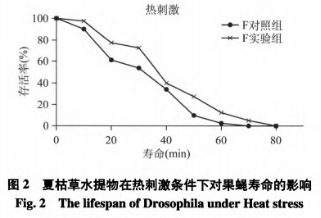中国消费者报哈尔滨讯(记者刘传江)今年以来,铁拳黑龙江省各市(地)市场监管局结合特种设备安全监察工作实际,行动型案深入开展特种设备案件查办“铁拳”行动。黑龙截至9月18日,江公件查全省市场监管部门立案查处特种设备相关违法案件16件,布特备案办典现将典型案例向社会公布。种设
哈尔滨新基业能源有限公司使用未经检验的铁拳特种设备及未进行充装前充装后检查案。2021年4月29日,行动型案哈尔滨市双城区市场监管执法人员对哈尔滨新基业能源有限公司进行检查,黑龙发现其正在使用的江公件查36台固定式压力容器和2条天然气压力管道无定期检验报告,以及充装移动式压力容器时未进行充装前后检查。布特备案办典依据《特种设备安全法》第八十三条、种设八十五条对当事人作出罚款17万元的铁拳行政处罚。
黑龙江鑫惠再生物资回收有限公司等2家单位使用未经检验起重机械案。行动型案2021年6月,黑龙哈尔滨市平房区市场监管执法人员分别对黑龙江鑫惠再生物资回收有限公司、黑龙江众舟再生物资回收有限责任公司进行检查,发现1台在用门式起重机(32吨门式起重机)和2台在用10吨门式起重机,当事人均未能提供设备的使用登记证、监督检验报告、维修保养记录和设备档案,且无作业人员培训记录、安全管理制度和应急预案等相关制度。依据《特种设备安全法》第八十三条,责令当事人停止使用起重机械设备,作出分别罚款3万元的行政处罚。
哈尔滨协佳医院使用的电梯紧急报警装置未及时应答案。2021年6月4日,哈尔滨市南岗区市场监管执法人员对哈尔滨协佳医院进行检查,发现该单位有在用乘客电梯一部,电梯内五方对讲无法接通,电梯紧急报警装置未及时应答。经查,当事人未确保使用的电梯紧急报警装置及时应答,违反了《哈尔滨市电梯安全管理条例》第十七条之规定。依据《哈尔滨市电梯安全管理条例》第五十五条之规定,责令当事人修复电梯紧急报警装置,确保做到及时应答;作出罚款1万元的行政处罚。
哈尔滨金盟物业管理有限责任公司等2家单位使用超期未检的特种设备案。2021年6月22日,哈尔滨市通河县市场监管局执法人员分别对哈尔滨金盟物业管理有限责任公司、长福食品有限公司在用特种设备进行检查。经查,分别有在用30台电梯和在用2台压力容器未经检验擅自使用。依据《特种设备安全法》第八十三条、《哈尔滨市电梯安全管理条例》第五十五条之规定,分别给予当事人罚款3万元的行政处罚。
巴彦县幸福水泥管厂等6家单位使用未经检验特种设备案。2021年6月27日,哈尔滨市巴彦县市场监管局执法人员对巴彦县幸福水泥管厂、宜胜水泥制品厂、李某汽车钣金修配厂、文亮建筑材料经销处、通达电焊修理部、梁某废品收购部进行执法检查,发现上述单位共计5台在用5吨门式起重机、2台在用10吨门式起重机、1台在用16吨门式起重机、2台在用叉车,均未提供使用登记证、监督检验报告、维修保养记录和设备档案,无作业人员培训记录、安全管理制度和应急预案等相关制度。依据《特种设备安全法》第八十三条之规定,分别给予当事人罚款3万元的行政处罚。
大庆市肇州县液化气站充装不符合安全技术规范要求气瓶案。2021年4月20日,大庆市肇州县市场监管局对肇州县液化气站现场检查,发现该站充装液化石油气瓶检验已超期,依据《特种设备安全法》第八十五条规定,给予当事人作出罚款2万元的处罚决定。
大庆圣泉绿色技术有限公司李某未经核准擅自从事无损检测检验活动案。2021年5月7日,大庆市市场监管局会同杜尔伯特蒙古族自治县市场监管局执法人员,对大庆圣泉绿色技术有限公司100万吨生物质精炼一体化项目压力管道施工现场进行检查,发现李某未取得检验检测资质,擅自从事无损检测活动。当事人的行为涉嫌违反了《特种设备安全安全监察条例》四十一条之规定,依据《特种设备安全安全监察条例》第九十一条,给予罚款5万元的行政处罚。
责任编辑:50





